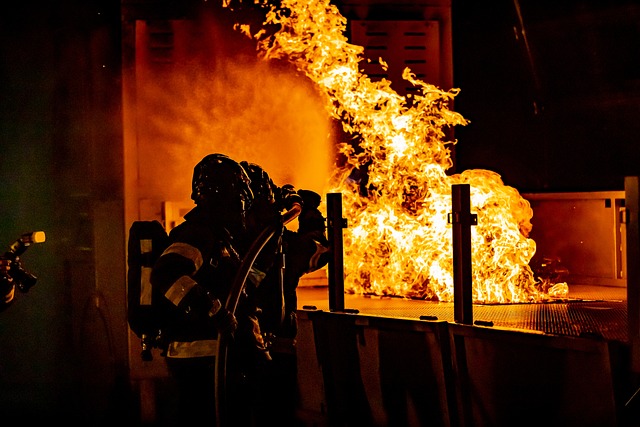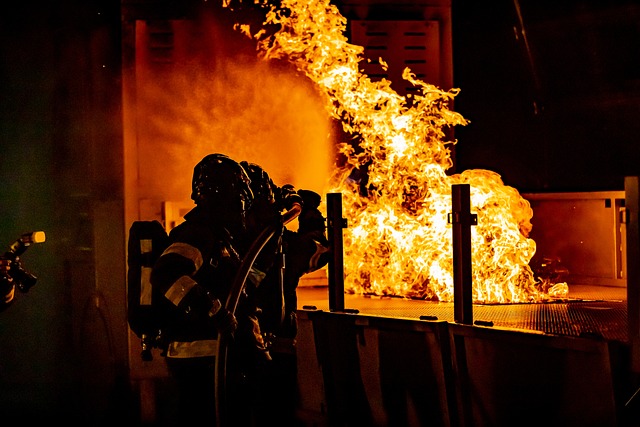When selling a fire-damaged home in Houston, Texas property disclosure laws are strict, requiring sellers to disclose known defects like fire damage, repairs, and remediation efforts. The Property Condition Disclosure Statement (PCDS) asks about structural issues, mechanical systems, improvements, and damage causes. Transparency helps buyers make informed decisions and expedites the selling process. Sellers must avoid non-disclosure, which can lead to legal issues and financial burdens; resources from TREC, local governments, and legal professionals guide sellers through the process.
“Texas property disclosure laws play a crucial role in ensuring transparency during real estate transactions, especially when selling a fire-damaged home in Houston. This comprehensive guide navigates the legal obligations and requirements for homeowners, providing insights into what constitutes fire damage disclosure. From understanding the scope of these laws to their impact on transactions, this article offers valuable resources for those looking to sell fire-damaged properties in Houston, ensuring a smooth and compliant process.”
- Understanding Texas Property Disclosure Laws
- What constitutes a fire damage disclosure?
- Legal Obligations for Home Sellers in Houston
- Exceptions and Exclusions to Disclosure Requirements
- The Impact of Non-Disclosure on Real Estate Transactions
- Resources and Further Guidance for Homeowners in Houston
Understanding Texas Property Disclosure Laws

Understanding Texas Property Disclosure Laws is crucial for anyone looking to sell a fire-damaged home in Houston or any other part of the state. These laws require sellers to disclose known defects or damage that could impact a buyer’s decision to purchase property. In the case of fire-damaged homes, this includes revealing the extent and nature of the damage, along with any ongoing repairs or remediation efforts.
Texas has specific regulations in place to ensure transparency during real estate transactions. Sellers must provide buyers with a Property Condition Disclosure Statement (PCDS), which asks detailed questions about various aspects of the property, including structural elements, mechanical systems, and any recent improvements or damage. For fire-damaged properties, this may involve disclosing information about the cause of the fire, the extent of water damage, and whether any asbestos or lead-based materials were present. Promptly addressing these disclosures helps buyers make informed decisions and can streamline the selling process for both parties, especially when dealing with a sell fire damaged home Houston scenario.
What constitutes a fire damage disclosure?

When considering selling a fire-damaged home in Houston, understanding Texas’s property disclosure laws is crucial. A fire damage disclosure refers to the legal requirement for sellers to inform buyers about any significant incidents of fire or smoke damage within the property. This includes providing details on when the damage occurred, the extent of repairs carried out, and ensuring that the structure is safe for occupation.
In Houston, as in many parts of Texas, sellers must disclose known defects or damages that could impact a buyer’s decision to purchase a property. Fire-damaged homes require specific disclosure statements, detailing the nature and extent of the fire, the subsequent repairs, and any potential residual issues. This transparency helps buyers make informed decisions and ensures they understand the current state of the property they intend to buy.
Legal Obligations for Home Sellers in Houston

When selling a fire-damaged home in Houston, Texas, sellers have legal obligations under state disclosure laws. These laws mandate that property owners disclose any known defects or damage that could impact a buyer’s decision. In the case of fire damage, sellers must inform potential buyers about the extent and nature of the harm, including structural issues, water damage, or any remaining hazardous materials.
Houston home sellers are legally bound to provide accurate information during the sales process. They should thoroughly inspect their property and document all fire-related damages for transparency. This includes disclosing whether professional remediation was conducted and providing relevant records or reports to buyers who request them. Failing to disclose significant fire damage could lead to legal repercussions and financial liability.
Exceptions and Exclusions to Disclosure Requirements

When selling a fire-damaged home in Houston, it’s crucial to understand that Texas property disclosure laws have certain exceptions and exclusions. These provisions are designed to balance the interests of buyers and sellers by exempting some issues from mandatory disclosure. For instance, minor cosmetic defects or those that can be easily remedied by repairs typically don’t require disclosure. This includes issues like a stained ceiling or chipped paint, which are generally considered normal wear and tear.
However, significant structural damage, ongoing environmental hazards, or known health risks must be disclosed. This category includes fire damage that affects the home’s load-bearing walls, floors, or roofs. If the property has been subject to water damage from a flood or burst pipes, or if there’s evidence of mold growth due to water intrusion, these conditions must be revealed to potential buyers. Sellers are legally obligated to disclose these exceptions and exclusions to ensure transparency in the real estate transaction process, especially when selling fire damaged homes in Houston.
The Impact of Non-Disclosure on Real Estate Transactions

In real estate transactions, particularly when selling a fire-damaged home in Houston, complete and accurate property disclosure is paramount. Non-disclosure can have significant impacts, leading to legal repercussions and financial burdens for all parties involved. Sellers who fail to disclose known material defects, such as fire damage, risk facing lawsuits from buyers who discover these issues after the sale.
This is especially pertinent in the Houston market where a sell fire damaged home scenario could involve complex negotiations and potential reconstruction costs. Buyers, armed with knowledge of the property’s history, are better equipped to make informed decisions. Transparent disclosures protect both buyer and seller, fostering trust and ensuring smooth post-sale relationships.
Resources and Further Guidance for Homeowners in Houston

Homeowners in Houston, Texas, facing the task of selling a fire-damaged property can navigate their rights and responsibilities by seeking guidance from various resources. The first step is to understand local disclosure laws, which are designed to protect buyers and sellers alike. The Texas Real Estate Commission (TREC) offers comprehensive guidelines on property disclosures, including information specific to fire damage. They provide educational materials and a helpful FAQ section that clarifies common concerns.
Additionally, local government websites often have detailed resources for homeowners. Houston’s official website may include specific guidance on selling fire-damaged homes, detailing the disclosure process and any permits required. There are also legal professionals specializing in real estate transactions who can offer expert advice tailored to these unique situations. These resources ensure that sellers are well-informed, enabling them to disclose relevant information accurately and transparently when selling a fire-damaged home in Houston.
Selling a fire-damaged home in Houston comes with specific legal considerations. Texas property disclosure laws require sellers to disclose known material defects, including fire damage, to buyers. Understanding these regulations is crucial for a smooth real estate transaction. Homeowners should be aware of their obligations and the potential consequences of non-disclosure. By being transparent, sellers can avoid legal issues and foster trust with prospective buyers in the Houston market. This knowledge empowers both parties to navigate the process successfully when considering the sale of a fire-damaged property.






